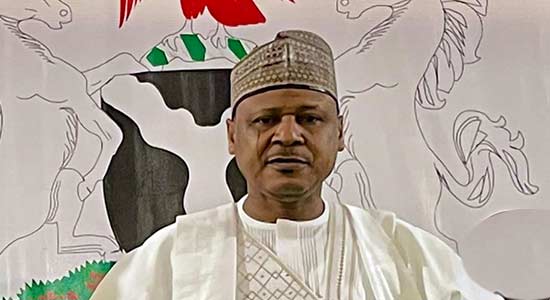The political landscape of Niger has been dramatically reshaped since July 26, 2023, when President Mohamed Bazoum was overthrown in a military coup led by General Abdourahamane Tiani, the head of his presidential guard. The coup, justified by allegations that Bazoum failed to adequately address the escalating jihadist insurgency plaguing the nation, has led to the president and his wife, Hadiza, being held under strict detention at the presidential palace in Niamey. This act has drawn widespread condemnation, particularly from Nigeria, the current chair of the Economic Community of West African States (ECOWAS), which has repeatedly called for Bazoum’s immediate and unconditional release. The international community, including the United Nations, has echoed these calls, characterizing the detention as arbitrary and a violation of fundamental human rights.
Nigeria’s stance, articulated by Information Minister Mohammed Idris, underscores the regional bloc’s commitment to democratic principles and the rule of law. Idris emphasized that Bazoum, a product of democratic processes, should only be removed from office through legitimate democratic means. He reiterated ECOWAS’s unwavering determination to pressure the junta for Bazoum’s release, highlighting the collective disapproval within the regional body of the military takeover. This stance reflects a broader concern within ECOWAS about the destabilizing impact of military coups on the region’s fragile political landscape. The detention of Bazoum not only represents a violation of democratic norms but also sets a dangerous precedent that could embolden other military interventions in the region.
The conditions of Bazoum’s confinement have raised serious concerns about his well-being. Reports indicate that he and his wife have been denied contact with the outside world, including family, friends, and legal counsel, since October 2023, after his phone was confiscated. This isolation further exacerbates the injustice of their detention and raises concerns about the potential for human rights abuses. The lack of access to legal representation limits Bazoum’s ability to challenge the legality of his detention and access due process. The international community has continued to press for access to Bazoum to assess his condition and ensure his fundamental rights are being respected.
While the junta recently released around 50 individuals, including former government ministers, this action has done little to alleviate international pressure for Bazoum’s release. The junta claims the releases were in line with recommendations from a national conference held in February, however, the continued detention of the democratically elected president casts doubt on the junta’s commitment to genuine dialogue and a return to democratic governance. The selective release of detainees, while potentially a positive step, does not address the core issue of the unconstitutional seizure of power and the ongoing detention of the legitimate head of state.
The coup in Niger has significantly altered the country’s geopolitical alignment. The military rulers have severed ties with France, a traditional ally, and expelled French and American troops involved in counter-terrorism operations. This move reflects a growing anti-Western sentiment within certain segments of the population and the junta’s desire to assert its independence from former colonial powers. Furthermore, Niger has withdrawn from ECOWAS, signaling a shift in its regional allegiances. The country has strengthened its ties with Burkina Faso and Mali, both of which are under military rule and facing similar challenges with jihadist insurgencies.
This realignment has led to the formation of the Alliance of Sahel States (AES), a bloc of countries seeking to forge a new path independent of Western influence. The AES represents a growing trend of military-led governments in the Sahel region seeking closer ties with Russia, potentially as a counterbalance to traditional Western partnerships. This shift in alliances raises concerns about the future stability of the region and the potential for increased Russian influence in the Sahel. The long-term implications of these geopolitical shifts remain uncertain, but they underscore the complex and evolving dynamics of power and influence in the region. The international community faces a challenging task in navigating these changes and promoting a peaceful resolution to the crisis in Niger while respecting the sovereignty of the nation.


